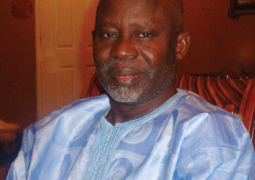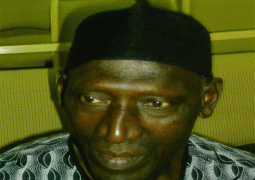When an African leader takes an oath of office, he or she always swears to respect the national constitution, the supreme laws of the land. But this is hardly the case. Because it is almost impossible to dislodge an incumbent African leader, he or she usually cruises to a five-year second term, through fair or foul means. But the second term scarcely runs out when they plot tenure elongation, a possible third term. They begin by tinkering with the constitution whose sanctity they have earlier vowed to respect. This is akin to the masquerade by which people disguised themselves to appear different from what they are.
The more-you-look-the-less-you-see posture of the African political elite has its origins in the anti-colonial struggle that led to political emancipation of the continent. No sooner had the political vanguard wrested power from the colonialists than they themselves became a class of oppressors, applying the same self-serving methods of governance as their predecessors. This resulted in disillusionment and alienation that in turn led to an avalanche of coups across
Under a democratic dispensation, the statutory tenure of office for an elected government in most African countries is two terms varying between four or five years. One leader who sought to go against the grain is former Nigerian leader Olusegun Obasanjo. He did all that he could to get a third term in office. But the ever vigilant Nigerian people spiked his guns.
It would have been assumed that other African leaders had learnt from the Obasanjo humiliation and grown to slake their insatiable thirst for power. But Mamadou Tandja, the leader of the
President Tandja's bid is unacceptable and unwise. Despite the claim that he has brought growth and stability to
The ECOWAS Commission should ensure that President Tandja abandons his referendum project that could pave the way for his third term bid. Such a move is necessary in order to avert any possible power tussle that could lead to violence and its attendant humanitarian crisis. From 1960 to date, 41 African Heads of State have been assissinated. To avoid military coups, African leaders must live up to expectations by observing term limit and respect the constitutions of their land.
We have seen enough of such senseless wars in the sub region. Enough is enough.
"The trouble modern democracy is that men do not approach leadership until they have lost the desire to lead anyone".
William Henry Beveridge




